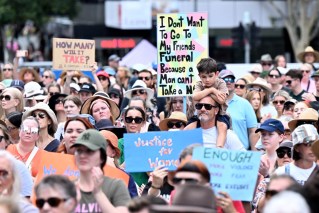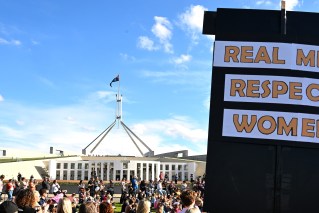Beautiful one day, tourist tax the next: Councils say visitors should pay to stay, play
Tourists lured by Queensland’s natural charms may soon have to pay more for the privilege, with local councils backing a move to introduce a visitor levy to help pay for vital infrastructure and marketing.


Queensland domestic travel numbers have declined slightly. (photo TEQ)
Cairns Regional Council is heading up the move, saying visitor levies were well-established in other parts of the world and more spending on destination marketing has proven to benefit local tourism operators.
The Local Government Association of Queensland’s annual conference resolved on Wednesday to call on the Palaszczuk Government to allow councils the power to introduce visitor levies.
The government’s Tourism Industry Reference Panel earlier this year urged legislative change to allow the implementation of visitor tourism levies under an opt-in model. At the time, the government said it would consider all the panel’s recommendations, including the visitor levy proposal.
Cairns mayor Bob Manning said there was clear evidence that increased investment and resources yielded “positive results” for the tourism industry.
“In Cairns, a visitor levy of just 2.5 per cent on short term accommodation, which equates to less than the cost of a cup of coffee, would raise more than $16 million per annum for destination marketing and tourism industry development, which would deliver an estimated $176 million incremental impact to GRP,” he said.
Backers of a visitor levy say it will help the state bounce back from the devastation of border closures during the Covid-19 pandemic.
Prior to the pandemic, more than 234,000 people were employed in the state’s tourism industry, yet Queensland was losing market share to overseas and interstate competitors.
“If Queensland was to restore its market share to 2019 levels and maintain this through to 2032, it is estimated the sector would generate an additional $12 billion annually by 2032,” the council says in material supporting the motion.
It says any revenue raised by levies should go directly back to the local tourism sector.
The council also wants the government to establish a visitor levy advisory group to help councils who want to make such a move find the best way to go about it.
“The idea of a visitor levy is not new. It has been modelled, canvassed and debated for the best part of a decade,” the industry reference panel’s report, released in June, said.
“While we appreciate that views are polarised as to whether it is an appropriate way to raise funding, everyone we spoke with saw a greater need than ever for increased funding during the Covid‑19 recovery period.”
It said tourism hotspots overseas, such as Canada’s Whistler ski resort, had imposed visitor levies for many years.












